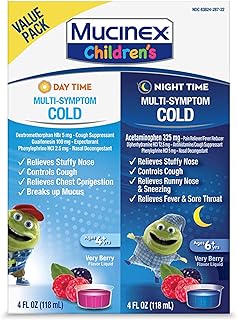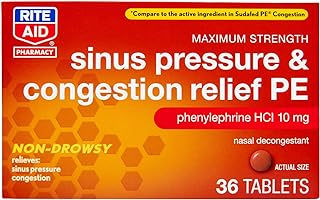5 important factors worth considering when looking for the best cpap alternatives
When looking for options besides CPAP machines to treat sleep apnea, it’s important to think about factors that can affect how well and comfortably the chosen option works. Things like how easy it is to move around, how customizable it is, and how noisy it is all matter in making sure you get a good night’s rest. By thinking about these important factors, people who want alternatives to CPAP can make smart choices that fit their needs and make their sleep and health better.
See our guide to the best cpap alternatives.
Effectiveness in treating sleep apnea
When choosing a treatment for sleep apnea, it’s important to focus on what will work best. While CPAP machines have been the standard choice, other options like oral appliances and positional therapy devices are becoming more popular. These alternatives offer a more comfortable and discreet option for patients who struggle with CPAP masks. However, the big question is whether these alternatives are as effective as CPAP in managing sleep apnea. While some studies show promising results, it’s important to carefully consider individual needs and preferences when looking at these alternatives.
When exploring sleep apnea treatment options, it’s crucial to prioritize effectiveness. Each person’s experience with sleep apnea is different, so it’s important to look at the evidence and personal factors when considering alternatives to CPAP. While comfort and convenience are important, they shouldn’t outweigh how well the treatment works. Ultimately, the decision to try an alternative to CPAP should be based on how well it relieves symptoms and improves sleep quality.
Comfort and ease of use
When looking at options other than CPAP machines, it’s important to consider comfort and how easy they are to use. These devices are supposed to help you sleep better and improve your health, but if they are uncomfortable or hard to use, they won’t work as well. One key thing to think about is how well the device fits and how it’s designed, so make sure it’s comfortable to wear for a long time. If a device is bothersome or doesn’t feel right, you might not use it like you’re supposed to, which defeats the purpose. That’s why it’s crucial to pick CPAP alternatives that prioritize comfort for a successful treatment plan.
Besides comfort, how easy a CPAP alternative is to use is also really important. Look for devices that are simple to set up and adjust, because this can make a big difference in how often you use them. Making the user experience easier with clear instructions and controls that are easy to reach can improve the overall treatment process. Ultimately, CPAP alternatives that are both comfortable and user-friendly not only make the therapy more effective, but also help people with sleep apnea and other similar issues have a better quality of life.
Portability and size
When looking at CPAP options, it’s important to consider how easy it is to take the device with you and how big it is. Having a smaller, portable device can make a big difference for people who need continuous positive airway pressure therapy on the move. Being able to use the treatment while traveling or moving around the house without being tied to a big machine can really improve someone’s life. Choosing a compact alternative lets users focus on their health without giving up freedom and mobility.
Also, the size of a CPAP alternative affects not only how easy it is to carry around but also how comfortable it is to use. A slim and light design can make the device less noticeable, which can help people stick to their treatment and sleep better. Going for a smaller option can make daily life easier for those who depend on breathing support, as it fits into their routine without causing problems. Prioritizing portability and size when picking a CPAP alternative shows a commitment to overall wellness and taking charge of sleep apnea or other breathing issues.
Noise level
When choosing a CPAP alternative, it’s important to consider the noise level. Many people focus on how well it works and how comfortable it is, but they forget about how noisy it might be. A loud CPAP alternative can be disruptive and may cause problems with sleep. With so many options available, it’s crucial to choose a quiet device to ensure a good night’s sleep. A CPAP alternative with low noise not only improves sleep but also makes the treatment more tolerable and effective in the long run.
Noise level is not only about comfort but also about practicality. A quiet CPAP alternative allows both you and your partner to sleep without disturbances. It creates a peaceful sleep environment that can improve relationships and well-being. Investing in a quieter CPAP alternative is an investment in your health and sleep quality. When exploring options, remember to consider noise level to find the best CPAP alternative for your respiratory needs and sleep quality.
Cost and affordability
When considering options other than CPAP, cost is important in making a decision. Although the upfront cost may be high, it is important to think about the money you can save in the long run. Choosing a treatment for sleep apnea that is effective and affordable is a smart choice that benefits both your health and your finances. It is important to consider the overall cost, including maintenance and accessories, to avoid unexpected financial problems later on. Finding a CPAP alternative that fits your budget and works well without sacrificing quality is key.
It can be tempting to choose a cheap CPAP alternative for a quick fix, but it is important to carefully evaluate the quality and effectiveness of these options. Investing a little more in a reliable alternative can pay off in the long term, ensuring a restful night’s sleep without compromising on effectiveness or durability. Prioritizing value over a low price is essential to finding a CPAP alternative that meets your needs and lasts a long time. Ultimately, finding the balance between cost and quality is crucial in making a well-informed decision about CPAP alternatives.
Conclusion
There are many options to consider instead of using CPAP therapy for people with sleep apnea. These options include using oral appliances, trying positional therapy, and making lifestyle changes like losing weight and exercising regularly. Each alternative has its own pros and cons, and how it affects your daily life. It’s important to work with your healthcare provider to find the right combination of treatments for your sleep apnea. Finding the best treatment for you is an ongoing process that requires an open mind and making informed decisions to improve your sleep and overall health. Want more info on nfl mailboxes, check the best nfl mailboxes.

